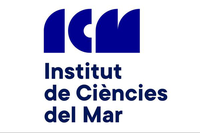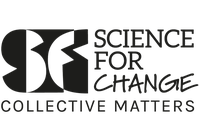Cos4Cloud
from 01/11/2019 until 28/02/2023
One of the biggest challenges of citizen science is the quality of data, as well as maintaining the citizen observatories used to collect this data. Cos4Cloud is addressing these challenges by developing twelve technological services to improve citizen science platforms, also known as citizen observatories, to help them boost the quantity and the quality of observations and, finally, to help ensure their long-term viability.
Cos4Cloud will co-design, prototype and implement services that address the technological challenges shared by citizen observatories of biodiversity, based on the experience of platforms like: Artportalen, Natusfera, iSpot, Pl@ntNet as well as other environmental quality monitoring platforms like: FreshWater Watch, KdUINO, OdourCollect, iSpex and CanAir.io. The design of new services will be user oriented, engaging a wide range of stakeholders in society, government, industry, academia, agencies, and research to co-design service requirements. Watch this 2-minute video to learn more about how Cos4Cloud is boosting citizen science technologies.
Cos4Cloud will make these services available in the new European Open Science Cloud (EOSC), a virtual space aimed at the European scientific community, so anyone interested in creating or improving their citizen observatory can use them. Among other things, the cutting-edge technologies will help improve interoperability, networking, data quality and secure management of data in citizen observatories, with a very user-friendly focus. If you want to learn more about the citizen observatories’ achievements in Cos4Cloud, check out this short video.
Aim
1) Collaborate on international and interdisciplinary levels. Facilitate networking and knowledge-management processes across organizations, people and initiatives working on citizen observatories.
2) Help citizen observatories’ sustainability. Help ensure the long-term viability of citizen science platforms.
3) More and better data. External cloud-based services will ensure collection of larger data sets with improved quality control.
4) Support citizen science growth. Integrate citizen science into the European Open Science Cloud to make it available to the whole scientific community.
5) Develop innovative technologies. Make available technological services built by and for users that improve the citizen observatories and contribute to their sustainability.
6) Increase the use of citizen science data. Follow the FAIR data principles (findable, accessible, interoperable and reusable) to make the most of the data available from citizen science.
About funding
Funding bodies: European Commission
Created May 13, 2020, 8:51 a.m.
Updated March 1, 2022, 5:11 p.m.




